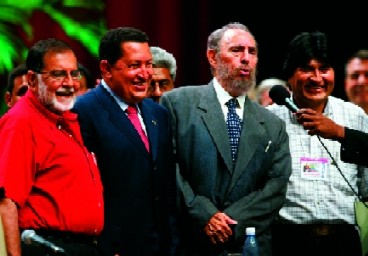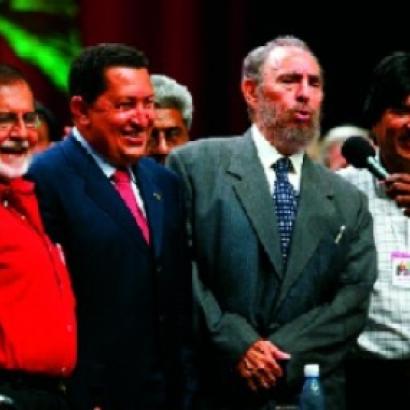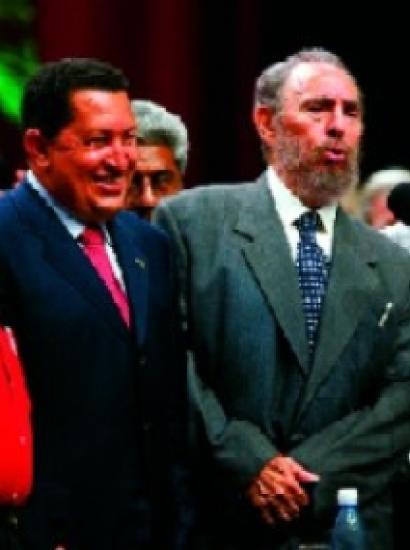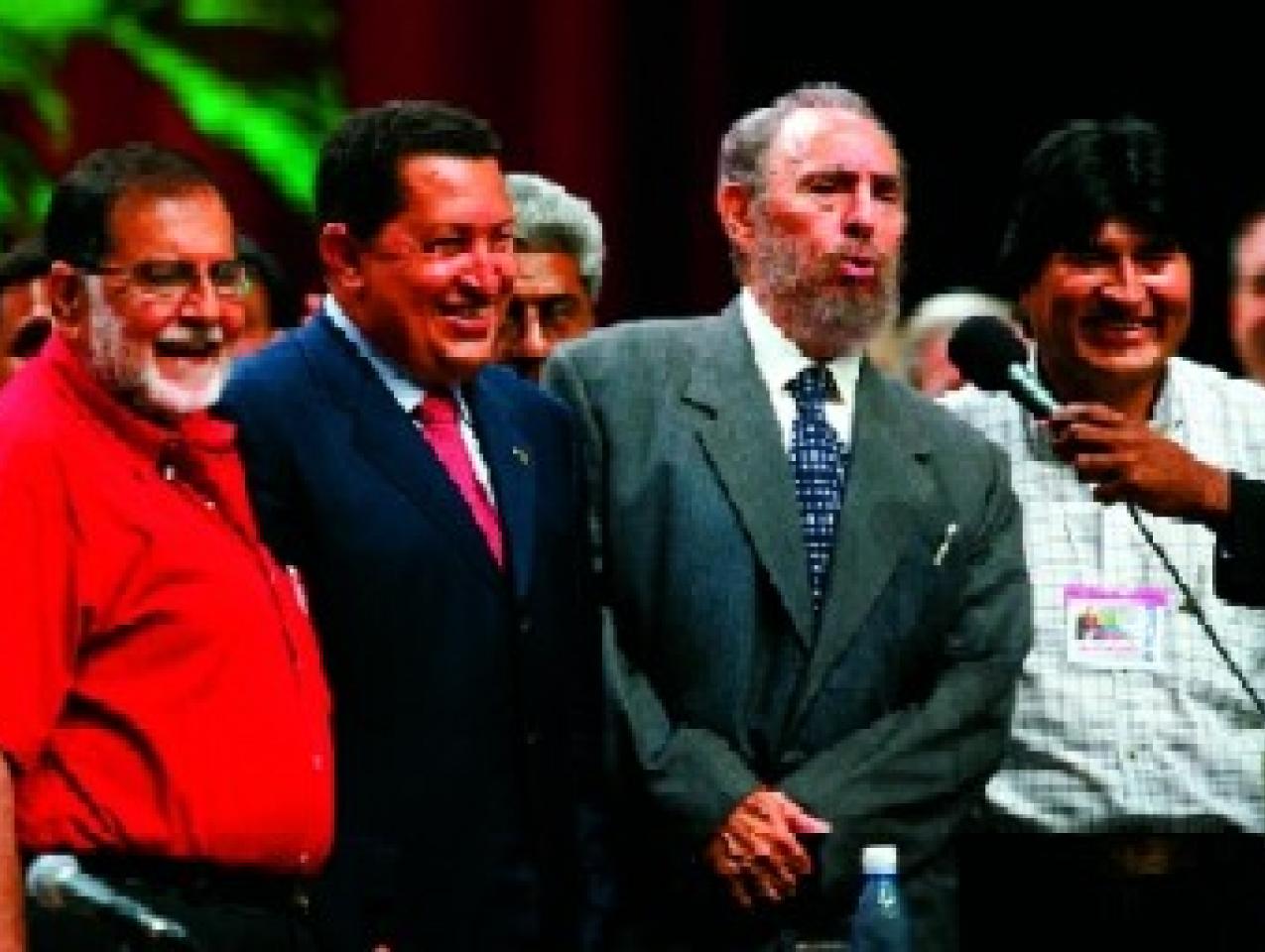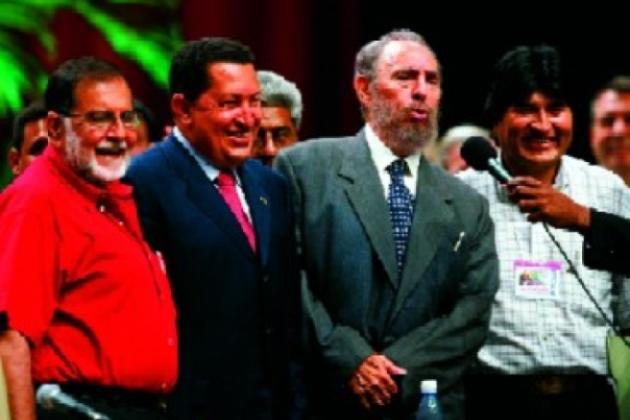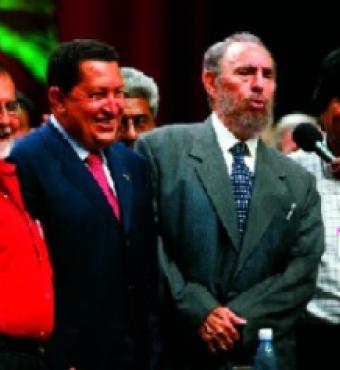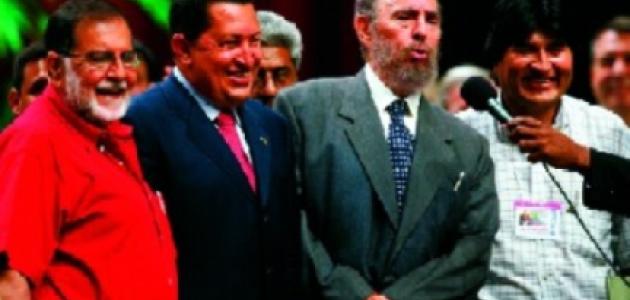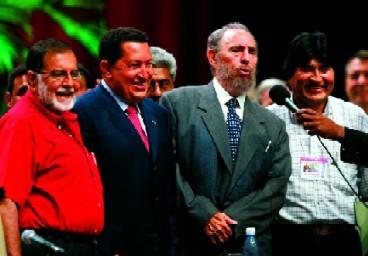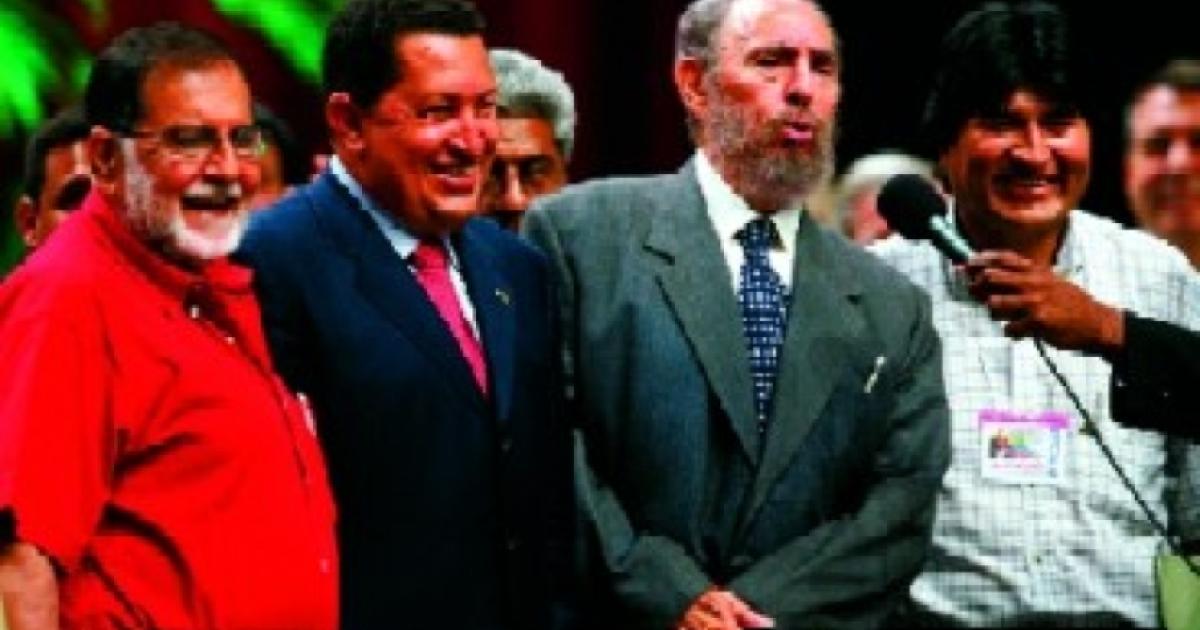To judge by the column inches—make that miles—devoted to the furor over the Danish cartoons of the prophet Muhammad, we are living through a historic world event.
I believe, however, that all this noise is a distraction from much more important trends. For instance, while the United States has become fixated on the Muslim world, a region much closer to home has been quietly spinning out of American control.
x

“Who lost Latin America?” is the question the next Democratic contender for the U.S. presidency may legitimately be able to ask. Since the election of Hugo Chávez as president of Venezuela in 1998, there has been a drastic erosion of U.S. influence south of the Rio Grande. The most recent manifestations are the election victories of the coca-chewing populist Evo Morales in Bolivia and the socialist Michelle Bachelet in Chile. In the first round of Peru’s election held in April, the militant Ollanta Humala won a place in the runoff, to be held later this year. Polls suggest that the anti-U.S. candidate Andrés Manuel López Obrador could also do well when Mexicans vote in July.
>The question “Who lost Latin America?” might seem to imply that the United States once owned or controlled it. That was indeed one of the very earliest aspirations of U.S. foreign policy. In 1823, President James Monroe enunciated his doctrine “that the American continents . . . are henceforth not to be considered as subjects for future colonization by any European powers.” By 1904, that doctrine had mutated into the claim that the United States had the right to invade and “police” Latin American states if their internal politics took a turn unpalatable to Washington.
Repeatedly thereafter, the United States has exercised that supposed right: In Colombia, Cuba, Guatemala, Panama . . . how long have you got? In fact, the only Central American state that hasn’t found itself on the receiving end of at least one U.S. military intervention is Costa Rica. At first, George W. Bush kept up the tradition of prioritizing the Americas, naming Mexican president Vicente Fox as his main man among foreign leaders.
STRANGE INDIFFERENCE
Yet since 9/11 all that—more than a century of consistent U.S. foreign pol-icy—has gone out the window. This is the really big story of 2006—and yet no one is paying it any attention. And it’s not as if the new populists in Latin America aren’t looking for attention. Chávez recently declared: “The imperialist, genocidal, fascist attitude of the U.S. president has no limits. I think Hitler would be like a suckling baby next to George W. Bush.” Now if Chávez were a Muslim leader, this would be front-page news. But because he says it in Spanish, everyone yawns. Come on folks. It’s just over 2,000 miles from Washington to Caracas. It’s nearly 7,000 miles to Kabul. And Chávez is sitting on top of 6.5 percent of the world’s proven oil reserves.
The naive explanation for this strange indifference to Latin America is that, since the end of the Cold War, it just doesn’t matter. Rubbish. It mattered to Monroe, and it should matter to us. One reason I’ve already mentioned: Latin America accounts for 8.5 percent of the world’s oil reserves. Then there’s democracy: to be precise, the fate of President Bush’s project to spread democracy around the world. And there’s immigration too.
The new regimes in Latin America are throwbacks to the bad old days of antiglobal economics. They may not nationalize oil and gas fields, but the new populists are keen to “renegotiate” (i.e., repudiate) existing contracts with foreign companies—and not just in the energy sector. Such policies are almost certain to be counterproductive, scaring off foreign investors.
| If Hugo Chávez were a Muslim leader, his diatribes and insults of President Bush would be front-page news. But because he says it in Spanish, everyone yawns. |
The new populists are coming to power in large measure because of their successful mobilization of indigenous peoples against the elites of Euro-pean/mestizo ancestry who have dominated regional politics since the era of conquest and colonization. What we are seeing is the result of the democratic process, albeit—in the Venezuelan case—a process that is being undermined by those it has brought to power. So you don’t need to go to the Middle East to find evidence that democracy doesn’t always produce liberal governments.
The kinds of policies that these populists are pursuing are a recipe for trouble. Despite the oil bonanza, after five years of Chávez, Venezuela’s gross domestic product per capita has collapsed by 23 percent. Now, what do Latinos do when their home economies tank? Many of them try to emigrate. And where do they head? The United States. In 2004, according to the Department of Homeland Security, 42 percent of immigrants to the United States and 99 percent of deported illegal immigrants were from Latin America (including the Caribbean).
| Since 9/11, more than a century of consistent U.S. foreign policy toward Latin America has gone out the window. This is the really big story of 2006—and yet no one is paying it any attention. |
For the White House, the cartoon crisis has been a godsend because it seems to justify Bush’s prioritization of the “long war” against Islamist terrorism. But will it make it into the history books? Sorry, my money’s on the loss of Latin America.
The content of this article is only available in the print edition.






